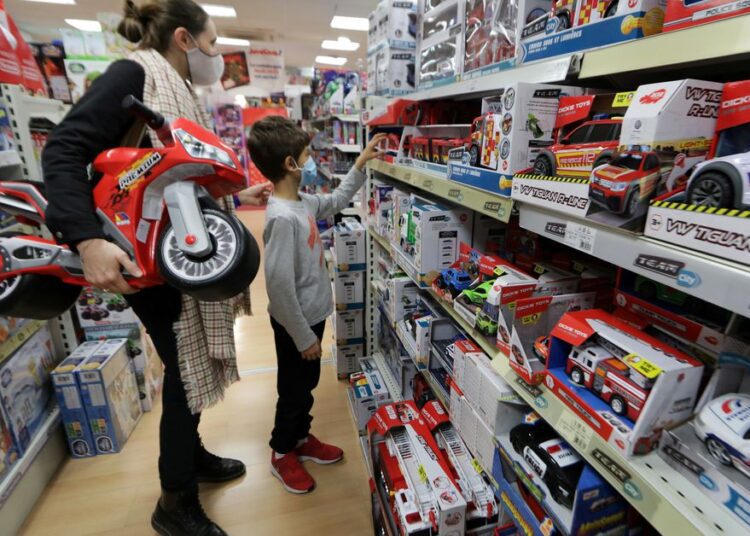NEW YORK – If your kids have their hearts set on a particular toy this holiday season, a word of warning: It might not be easy as wandering into a store and plucking it off a shelf, according to Reuters.
Instead, you could find yourself smack in the middle of supply chain hell.
In many ways, 2021 is a perfect logistical storm, says Juli Lennett, US toy industry advisor at The NPD Group.
“This has to do with shutdowns in China due to Covid, the cost of shipping increasing incredibly, the port of L.A. backing up, and the lack of trucks and drivers,” Lennett explains.
On top of everything, there is also sky-high consumer demand. Last year’s toy sales through August were up 18 per cent. This year’s sales are up another 18 per cent, and that momentum is expected to continue barreling through the end of the year, Lennett says.
“There has been an incredible increase in consumer demand,” says Ed Desmond, executive vice president for the trade group The Toy Association. “People have been in their homes for a year and half, and that has affected all kinds of consumer products – including toys.”
Supply-chain challenges around the world do not mean that you are out of options. But the situation does require that you be more strategic and thoughtful about holiday planning than in years past.
Here are five tips from the experts:
STOCK UP NOW
It might seem silly to start buying now for an event months away, but that exactly what you should be doing.
“So many people tend to wait until the holiday season, but there is actually good supply right now on the shelves,” Desmond says. “If you’re in stores for other reasons like back-to-school shopping, and you see something you like, pick it up now.”
CONSIDER TOY POPULARITY
Every year, there are a handful of toys that catch fire in children’s imaginations. If what you are looking for falls into that category, be proactive.
For instance, nine of the top 10 fastest-selling new toys are either trading cards (football and baseball), or building sets, according to The NPD Group. In other words, if your kid wants a Lego set for Boba Fett’s ship from the Star Wars character universe on NPD’s list – start shopping.
Other hot toy lists that could tip you off about impending product squeezes: The Toy Insider, Amazon, Walmart, and Macy’s.
USE MULTIPLE MONEY-SAVING STRATEGIES
An in-demand product means it will be challenging this year to find attractive discounts – but not necessarily impossible. Consumer finance expert Andrea Woroch suggests sites which monitor price drops, like Honey, whose “Droplist” notifies you when targeted items get discounted.
Also be on the lookout for retailer coupons, such as through the browser extension Cently, which will automatically search for applicable coupons and apply those codes at checkout.
You might find additional discounts for first-time purchases at a retailer, or for subscribing to their e-mail list. You could also get savings after the fact; some retailers will refund the difference if there is a subsequent price drop shortly after your purchase.
EXPAND YOUR SEARCH
Most consumers have a “go-to” site for many purchases, like Amazon, and don’t search much beyond that. In 2021, you might have to deepen your pool of retailers: just because something is unavailable at one, doesn’t mean it is out-of-stock at another.
Google Shopping, Woroch suggests, is a useful tool for surveying a wide array of retailers for the same item.
Another tip from Woroch: If an item is extremely popular and happens to be available locally, select the “curbside pickup” option. An online order could always get canceled by retailers if they run out, so take advantage and go pick it up yourself.
WIDEN YOUR LIST
If you are fixated on one desired item, you have essentially boxed yourself into a corner. Whereas if you have multiple possibilities, you have increased your chances of getting at least something on the list.
It might be a good time manage expectations, and encourage kids to ask Santa for a few different gifts that they would be equally happy with.
“If they want something very specific, you might have to divert them in a different direction,” says Lennett. “Or you could get not that precise product, but something close.”






Discussion about this post